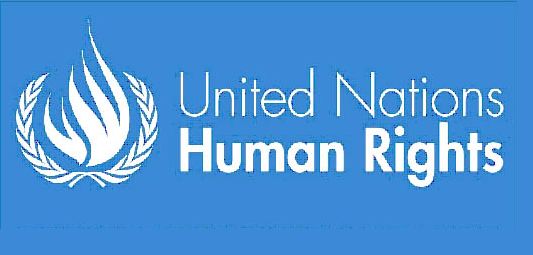This article is based on Ingvild Gjone Lyberg (Amnesty International Norway) text, UN’s and Association’s for the prevention of torture information.
In advance of the debate, the experts at the United Nations presented a report on the subject. John Peder Egenæs, below, Secretary General of Amnesty International Norway, is pleased with the principal line that  the UN finally leads.
the UN finally leads.
“Expert recommendations are consistent with the recommendations of Amnesty and other human rights organizations that have been promoted for years. It means that our international work has borne fruit,” he said.
Yet the UN recognition is only one step on a long way. The debate was marked by a large gap between the states, according to Amnesty International Norway.
European Union and many individual countries, including Norway, were positive to the report and its recommendations. But not surprisingly, countries that clearly violate many of the UN recommendations, including the USA, the Russian Federation, the People´s Republic of China, Nigeria and Sri Lanka, were more critical and questioned both the report’s methodology and findings.
It is still uncertain whether the debate will lead to a resolution or a general call to America that they must follow the report’s recommendations.
Nine steps
This is the list of measures States must implement immediately to put an end to illegal detention and ensure accountability by those with responsible for such practices made by Amnesty International, Human Rights Watch, the International Commission of Jurists (ICJ) and the International Federation for Human Rights (FIDH):
1. National laws must include an explicit and absolute prohibition of illegal detention and secret detention institutions, and laws must be systematically followed up in practice.
2. Lawyers, medical staff and independent monitoring mechanisms must have valid (legal) access to all institutions where people are deprived of their liberty, and personal access to all detained persons. This must be fully respected in practice.
3. Any detention must be subject to meaningful and independent judicial control (Judicial controller).
4. National legislation should require immediate notification to the prisoner’s family of their location, legal status and health. These requirements must be respected in practice. Families must also have a legally based right to such information.
5. National legislation, which itself must comply with international obligations, must be responsible to do intelligence activities, including complicity in human rights violations committed by foreign intelligence services. Intelligence services must be subject to effective and independent control.
6. All allegations of human rights violations in connection with unlawful imprisonment must result in rapid investigation, accountability and access to redress and compensation for the loss. This also applies to family members of people who allegedly have been subjected to disappearances. Secrecy and national safety regulations must not be invoked or used in any way to deprive victims of their right to compensation.
7. Independent and comprehensive public investigations must be undertaken with sufficient investigative resources to determine whether the cooperation between public officials and foreign intelligence and legal services has led to violations of human rights.
8. National laws should prohibit the transfer of persons from the one State to another without any control mechanisms which follow international standards, and never in conflict with the principle of non-refoulment (security against return to countries where they can be subjected to persecution, including torture, forced disappearances and unfair trials). These laws must be strictly respected in practice. Diplomatic assurances against torture, with or without “monitoring mechanism”, should not be used to justify such transfers.
9. States that have not already done so should ratify and implement relevant human rights treaties without reservations – in particular:
• International Convention for the Protection of All Persons from Enforced Disappearance;
• International Covenant on Civil and Political Rights;
• UN Convention against Torture and Other Cruel, Inhuman or Degrading Treatment or Punishment, and its additional protocol.
UN view
In the UN Human Rights Council the joint report on Global Practices of Secret Detention in the Context of Counter-Terrorism (UN Doc. A/HRC/13/42, 26 January 2010) was introduced on 2 June 2010 by  three Special Procedures. Their opinions were quite contradictory putting focus on different things.
three Special Procedures. Their opinions were quite contradictory putting focus on different things.
Martin Scheinin, Special Rapporteur on the promotion and protection of human rights and fundamental freedoms while countering terrorism, said the Special Rapporteurs and the members of the Working Groups strived for a global study, mapping the historical background of secret detention, the post 9-11 emergence and surfacing of a new wave of such practices and the way in which secret detention continued to be resorted to in all corners of the world.
Manfred Nowak, United Nations Special Rapporteur on torture and other cruel, inhuman or degrading treatment or punishment, said the joint study was global in nature, and was an attempt to give a general overview of the practice of secret detention in the context of counter-terrorism in all regions of the world. Within its global nature, the main objective of the study was to illustrate, in concrete terms, what it meant to be secretly detained, how secret detention in the context of counter-terrorism could facilitate the practice of torture or ill-treatment, and how secret detention had left a life-lasting mark on the victims as well as on their families.
Shaheen Ali, Vice-Chair of the Working Group on arbitrary detention, said that secret detention was irreconcilably in violation of international human rights and humanitarian law. Despite these unequivocal norms, secret detention continued to be used in the name of countering terrorism around the world and had been reinvigorated by the so-called global war on terror.
The joint report, issued by twelve UN Human Rights Council experts, is on the whole an important record of a practice that violates core human rights and a reminder that, absent vigorous scrutiny and effective protest, it is a practice that continues to this day.
Find out more about joint report, secret detention and recommendations in article "Secret detentions widespread in war on terror" by Kanaga Raja here.
recommendations in article "Secret detentions widespread in war on terror" by Kanaga Raja here.
The interactive dialogue on the joint study on secret detention was held on 3 June 2010.
Background
Article 7 of International Covenant on Civil and Political Rights (ICCPR) prohibits secret detention in all cases. The UN Convention for the Protection of All Persons from Enforced Disappearance states that “No one shall be held in secret detention”.
Every secret detention violates international law.
Secret detention constitutes an enforced disappearance where it persists for more than a week or two or otherwise contains indications that its purpose or effect is to place the individual outside the protection of the law.
Find more juridical information about secret detention prepared by Association for the prevention of torture here.
Related links:
European NGOs call for stronger support for the International Criminal Court (ICC)
Amnesty International Norway calls not to rely on promises from the torturers


